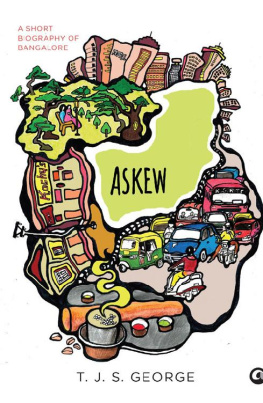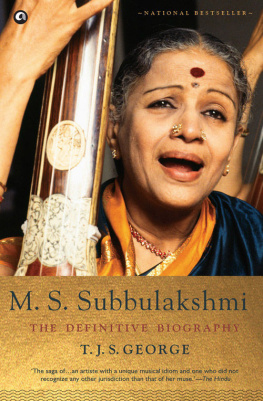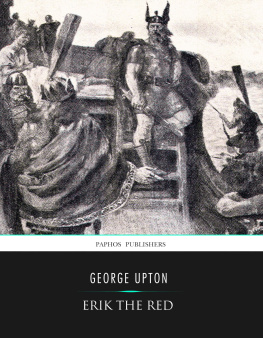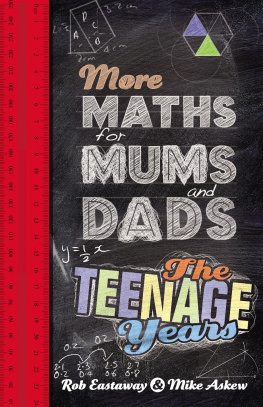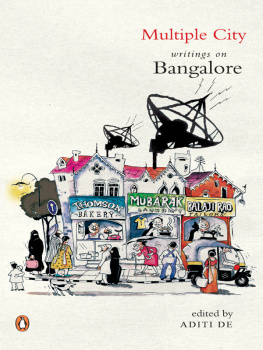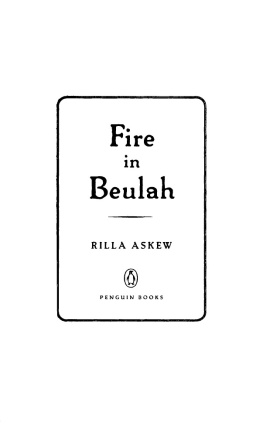ALSO BY T. J. S. GEORGE
MS Subbulakshmi: The Definitive Biography
Krishna Menon: A Biography
Lee Kuan Yews Singapore
The Life and Times of Nargis
The Goenka Letters: Behind the Scenes in the Indian Express
Editing: A Handbook for Journalists
The Provincial Press in India
Revolt in Mindanao: The Rise of Islam in Philippine Politics
The First Refuge of Scoundrels: Politics in Modern India
Lessons in Journalism: The Story of Pothan Joseph
The Enquire Dictionary of Quotations
The Enquire Dictionary: Ideas, Issues, Innovations
ALEPH BOOK COMPANY
An independent publishing firm
promoted by Rupa Publications India
First published in India in 2016 by
Aleph Book Company
7/16 Ansari Road, Daryaganj
New Delhi 110 002
Copyright T. J. S. George 2016
All rights reserved.
The views and opinions expressed in this book are the authors own and the facts are as reported by him/her which have been verified to the extent possible, and the publishers are not in any way liable for the same.
While every effort has been made to trace copyright holders and obtain permission, this has not been possible in all cases; any omissions brought to our attention will be remedied in future editions.
No part of this publication may be reproduced, transmitted, or stored in a retrieval system, in any form or by any means, without permission in writing from Aleph Book Company.
eISBN: 978-93-84067-85-4
This book is sold subject to the condition that it shall not, by way of trade or otherwise, be lent, resold, hired out, or otherwise circulated without the publishers prior consent in any form of binding or cover other than that in which it is published.
For YNK,
connoisseur maximus
Contents
Authors Note
My late lamented friend U. R. Ananthamurthy got Bangalores name officially changed to Bengaluru on the ground that u (oo) was an enabling sound in Kannada. It is and the sound is widely used while speaking or writing Kannada. But it does not follow that other languages must do the same. A universally accepted principle is that spelling follows language. Thus, London in English is Londres in French, Spanish and Portuguese, Al-Qahirah in Arabic is Cairo in English, Japan in English is Nippon in Japanese. What is enabling in one language can be disabling in another. I respect the memory of Ananthamurthy avaru and I yield to none in my admiration for the language and culture of my adopted state. But this book is in English, and I prefer to use the English spelling of Bangalore. If a Kannada version appears some day, I shall insist on Bengaluru.
TJSG
INTRODUCTION
Cities on the Water
How Others Cope with Growth
Whenever I think of the big cities of the world that have been home to me at one time or another, I am struck by mans unceasing struggle to make order out of chaos and the way he ends up making chaos out of order. I noticed this first in New York where I landed with my family in the mid-1970s to work for the United Nations in its Population Division, already in the limelight then with Dom Moraes as a staff writer. The summer sun was inviting and I took leisurely strolls in the citys neighbourhoods, marvelling at the planned orderliness of its geography. Many visits to London and Rome, Cairo and Tokyo had led me to associate great metropolises with labyrinthine streets, lanes and bylanes, meandering from nowhere to everywhere. In Manhattan, logic reigned. The borough was neatly drawn, a chessboard, the north-south roads marked out as avenues, the east-west ones as streets, and all avenues and streets and the buildings on them serially numbered so as to enable a newcomer to reach any address effortlessly. The value of this seemingly simple approach struck me some ten years later when I built a house on 8-B Main Road, Sadashivnagar, Bangalore. For reasons no one could explain, 8-B Main was between 9th Main and 10th Main while 8-A was not visible to the roving eye. My house number was 166-A. The house next door was No. 171.
Behind New Yorks geographical logic, however, less edifying features lurked. The citys urban glory was the handiwork of two menFiorello La Guardia, its three-time mayor (1934-1945) and Robert Moses, an official who carried the title of parks commissioner but who wielded supreme power for forty-four years under various mayors. In his definitive biography, The Power Broker: Robert Moses and the Fall of New York (1974), Robert Caro gives credit to Moses for giving New York City its present character, but accuses him of elitism and racism. Highways and bridges were built for the convenience of the affluent. Automobiles were promoted because they were the preferred transport of the well-to-do; New Yorks subway, used by the lower strata, was starved of funds. Moses was convinced, according to Caro, that African-Americans were inherently dirty. Public housing was placed in locations that cemented the division of New York by race and class. The divided city grew and grew until it became a synonym for chaos, its highways clogged, its mass transit crowded beyond control, even its garbage collection system collapsing. When revisionist voices rose in the early twenty-first century saying it was time for a new Robert Moses to appear, Caro resorted to the columns of the New York Times to register his objection. We dont need a new Robert Moses, he declared, because he ignored the values of New York.
Values. A city is a living, throbbing organism with a soul of its own and, it would often seem, a thinking mind. Cities have memories and dreams, they nurture ambition and bemoan failure. Like individuals, cities derive their character from the values associated with them. Once New York made me aware of this, I realized that the cities I had known earlier were no different. Ironic as it may sound, Hong Kong rested on a platform of values developed during a relatively benign colonial rule. With zero natural resources and not enough people to develop a market for opium, the British decided to turn Hong Kong into an entrept and financial centre. That suited the genius of the locals who did not bother about the government as long as they were free to make money. Making money was precisely what the colonial overlords wanted, too. A marriage of convenience followed. The colonys governor was officially the supreme authority. In reality, he was overshadowed by the shining British lions that guarded the entrance to the Hong Kong and Shanghai Bank. The lions in turn were tame before the mighty horses that raced under the colours of the Jockey Club, a power group that comprised everyone who was anyone in the Crown Colony. The clich about Hong Kong was that it was run by the Jockey Club, the Hong Kong Bank and the governor, in that order.
Hong Kongs laissez faire culture made it the preferred Asian headquarters of many international organizations. Unlike sovereign states in the region such as Singapore and Malaysia, Hong Kong was easy. Money transfers were simple, government controls were hardly felt, censorship was virtually non-existent, travel was convenient, everyday freedoms were assured. It was home to me for a decade and a half because there was no freer place in Southeast Asia for the practice of journalism. Only in Hong Kong could the Far Eastern Economic Review , though colonially owned, be professionally run, attracting journalists of merit from many countries. Only in Hong Kong would I, fundless, dare leave the Review , team up with the equally fundless Michael ONeill and start Asiaweek which, with its Asian credentials, shook fund-rich rivals. For those who covered China (then a closed country) and the Vietnam War and the turmoils in Thailand, Indonesia and the Philippines, Hong Kong was the natural base of operations, an international city with Chinese characteristics. Incomparable, too, was the pull of the Foreign Correspondents Club, renowned for its Main Bar and the fine dining its restaurants offered. It is still the best journalists club in Asia.


